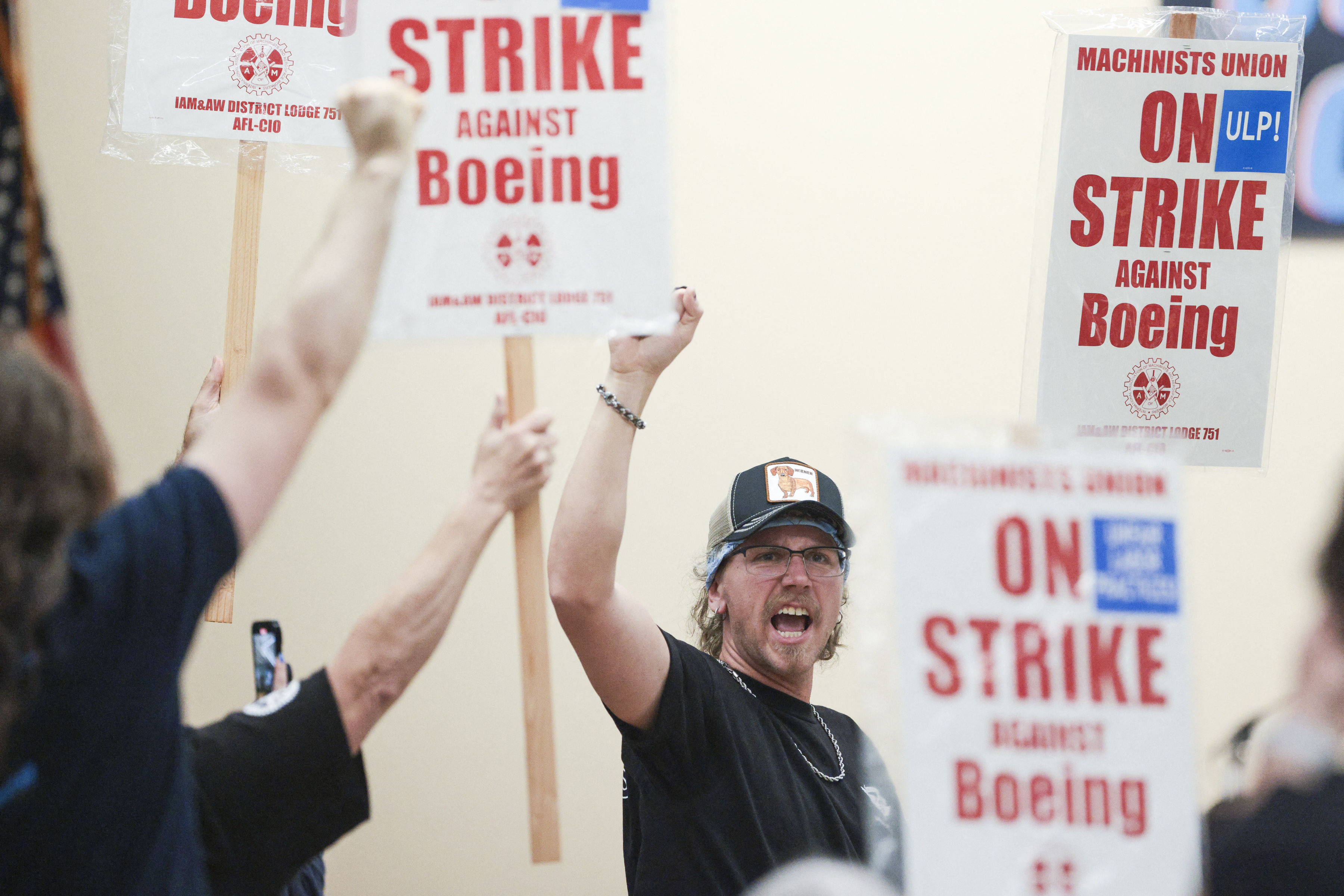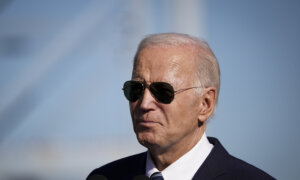Tens of thousands of Boeing workers walked off the job on Sept. 13 after rejecting a contract deal, marking the first strike since 2008.
Members of two local unions of the International Association of Machinists and Aerospace Workers overwhelmingly voted on Thursday night to reject the latest contract offer and initiate a strike. According to the unions, 94.6 percent voted to reject the contract, and 96 percent supported walking off the job. The strike began at midnight.
The 33,000 striking workers represent 22 percent of Boeing’s workforce. The Virginia-based company manufactures planes and other products.
Boeing and the unions said at the weekend that they had reached a tentative agreement on a new contract, which includes changes such as raising the starting base pay from at least $12 an hour to $21 an hour, as well as offering the option to receive a pension as a lump sum payment upon retirement.
“We have achieved everything we could in bargaining, short of a strike. We recommended acceptance because we can’t guarantee we can achieve more in a strike. But that is your decision to make and is a decision that we will protect and support, no matter what,” Jon Holden, president of the Aerospace Machinists District 751 union, said in an open letter on Monday.
While announcing the vote result days later, Holden said the strike “is about respect, this is about addressing the past, and this is about fighting for our future.”
“We strike at midnight,” he said, as members chanted: “Strike! Strike! Strike!”
The International Association of Machinists and Aerospace Workers said it supported the strike.
“We are incredibly proud of the hard work and dedication shown by the negotiating teams from District 751 and W24 and the unwavering solidarity of our membership. Their tireless efforts have been on display throughout this entire process. Now, they will regroup and begin planning the next steps on securing an agreement that our membership can approve,” the association said in a statement.
Boeing said in a statement Thursday that “we remain committed to resetting our relationship with our employees and the union, and we are ready to get back to the table to reach a new agreement.”
The 2008 Boeing strike lasted 52 days and cost Boeing an estimated $100 million a day. The contract that was reached to end the strike had been extended twice.
According to a pre-vote note from investment bank TD Cowen, a 50-day strike could cost Boeing $3 billion to $3.5 billion of cash flow.
The striking workers primarily work in the Seattle and Portland areas, building the 737 MAX and other aircraft.
“The key question now is on the duration of the strike given the gap between the proposed wage increase and union members request,” Jefferies analyst Chloe Lemarie said in a note, adding that a long strike represents a key risk for 737 MAX production levels.
Shortly after midnight, striking workers started to gather outside the entrances of Boeing factories in the Seattle area. Many waved placards that read: ‘On Strike Against Boeing', as drivers passed and honked their car horns.
“I’m willing to strike for two months or even longer. Let’s go as long as it takes to get what we deserve,” said James Mann, a 26-year-old who works in a wings division at Boeing.
Neither the White House nor the presidential candidates, Vice President Kamala Harris and former President Donald Trump, has commented on the strike as of yet.
Reuters contributed to this report.













